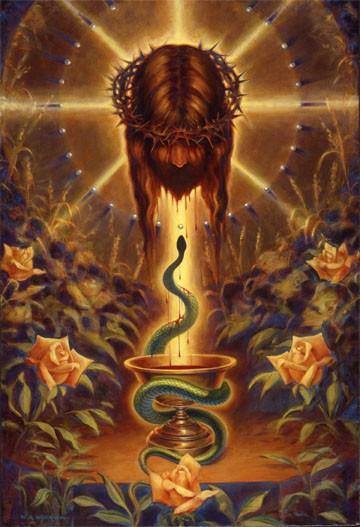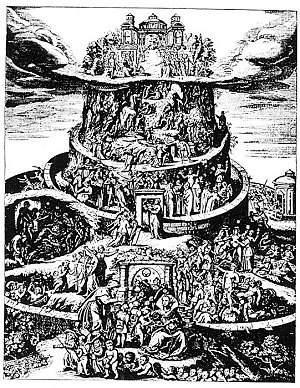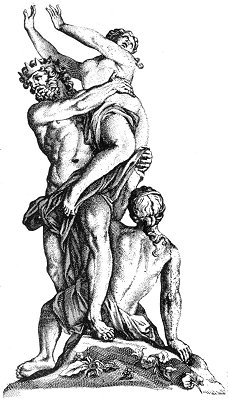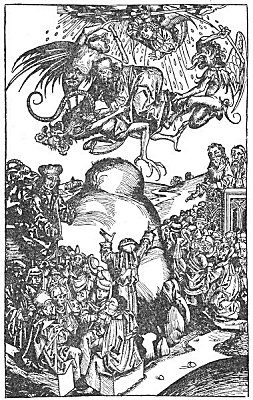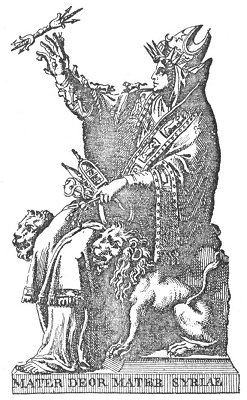Mahomet appeared nearly six hundred years after the presumed deicide. The Graeco-Roman world was still convulsed with religious dissensions, withstanding all the past imperial edicts and forcible Christianization. While the Council of Trent was disputing about the Vulgate, the unity of God quietly superseded the trinity, and soon the Mahometans outnumbered the Christians. Why? Because their prophet never sought to identify himself with Allah. Otherwise, it is safe to say, he would not have lived to see his religion flourish. Till the present day Mahometanism has made and is now making more proselytes than Christianity. Buddha Siddhartha came as a simple mortal, centuries before Christ. The religious ethics of this faith are now found to far exceed
Page 240
in moral beauty anything ever dreamed of by the Tertullians and Augustines.
The true spirit of Christianity can alone be fully found in Buddhism; partially, it shows itself in other “heathen” religions. Buddha never made of himself a god, nor was he deified by his followers. The Buddhists are now known to far outnumber Christians; they are enumerated at nearly 500,000,000. While cases of conversion among Buddhists, Brahmanists, Mahometans, and Jews become so rare as to show how sterile are the attempts of our missionaries, atheism and materialism spread their gangrenous ulcers and gnaw every day deeper at the very heart of Christianity. There are no atheists among heathen populations, and those few among the Buddhists and Brahmans who have become infected with materialism may always be found to belong to large cities densely thronged with Europeans, and only among educated classes. Truly says Bishop Kidder: “Were a wise man to choose his religion from those who profess it, perhaps Christianity would be the last religion he would choose!”
In an able little pamphlet from the pen of the popular lecturer, J. M. Peebles, M.D., the author quotes, from the London Athenaeum, an article in which are described the welfare and civilization of the inhabitants of Yarkand and Kashgar, “who seem virtuous and happy.” “Gracious Heavens!” fervently exclaims the honest author, who himself was once a Universalist clergyman, “Grant to keep Christian missionaries away from ‘happy’ and heathen Tartary!”
From the earliest days of Christianity, when Paul upbraided the Church of Corinth for a crime “as is not so much as named among the Gentiles — that one should have his father’s wife”; and for their making a pretext of the “Lord’s Supper” for debauch and drunkenness (1 Corinthians, v. 1), the profession of the name of Christ has ever been more a pretext than the evidence of holy feeling. However, a correct form of this verse is: “Everywhere the lewd practice among you is heard about, such a lewd practice as is nowhere among the heathen nations — even the having or marrying of the father’s wife.” The Persian influence would seem to be indicated in this language. The practice existed “nowhere among the nations,” except in Persia, where it was esteemed especially meritorious. Hence, too, the Jewish stories of Abraham marrying his sister, Nahor, his niece, Amram his father’s sister, and Judah his son’s widow, whose children appear to have been legitimate. The Aryan tribes esteemed endogamic marriages, while the Tartars and all barbarous nations required all alliances to be exogamous.
Page 241
There was but one apostle of Jesus worthy of that name, and that was Paul. However disfigured were his Epistles by dogmatic hands before being admitted into the Canon, his conception of the great and divine figure of the philosopher who died for his idea can still be traced in his addresses to the various Gentile nations. Only, he who would understand him better yet must study the Philonean Logos reflecting now and then the Hindu Sabda (logos) of the Mimansa school.
As to the other apostles, those whose names are prefixed to the Gospels — we cannot well believe in their veracity when we find them attributing to their Master miracles surrounded by circumstances, recorded, if not in the oldest books of India, at least in such as antedated Christianity, and in the very phraseology of the traditions. Who, in his days of simple and blind credulity, but marvelled at the touching narrative given in the Gospels according to Mark and Luke of the resurrection of the daughter of Jairus? Who has ever doubted its originality? And yet the story is copied entirely from the Hari-Purana, and is recorded among the miracles attributed to Christna. We translate it from the French version:

Moe is the founder of GnosticWarrior.com. He is a father, husband, author, martial arts black belt, and an expert in Gnosticism, the occult, and esotericism.

